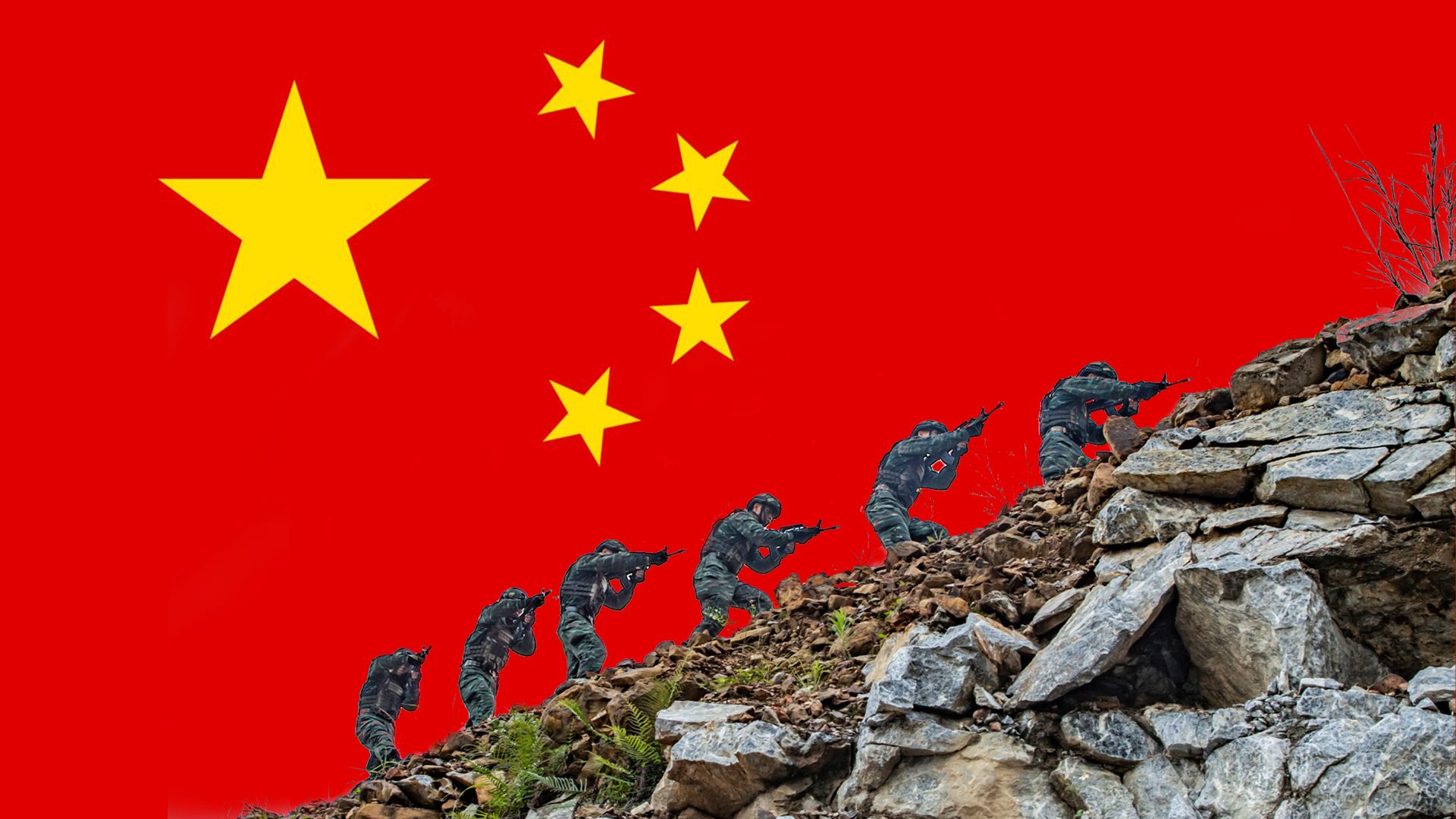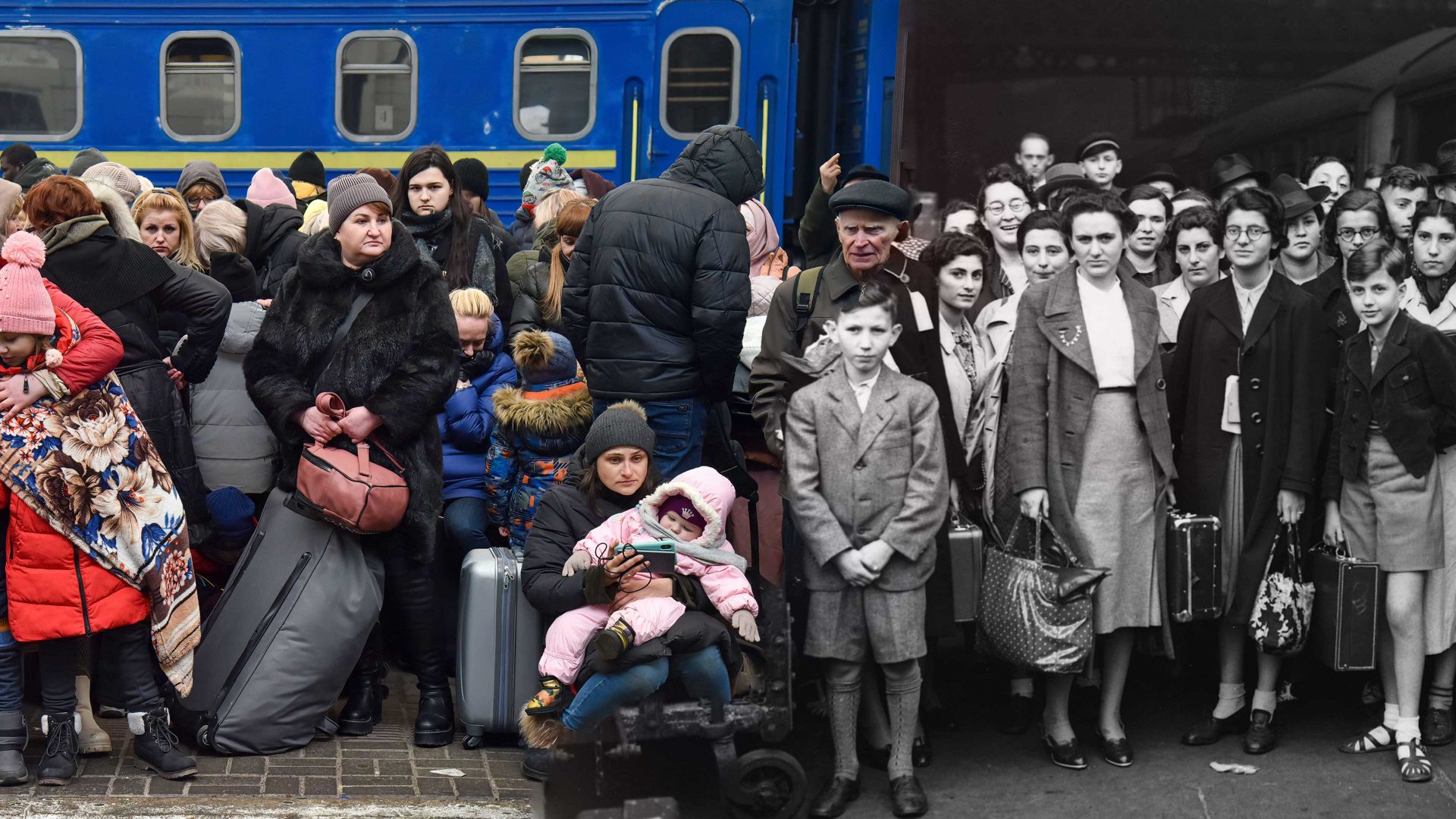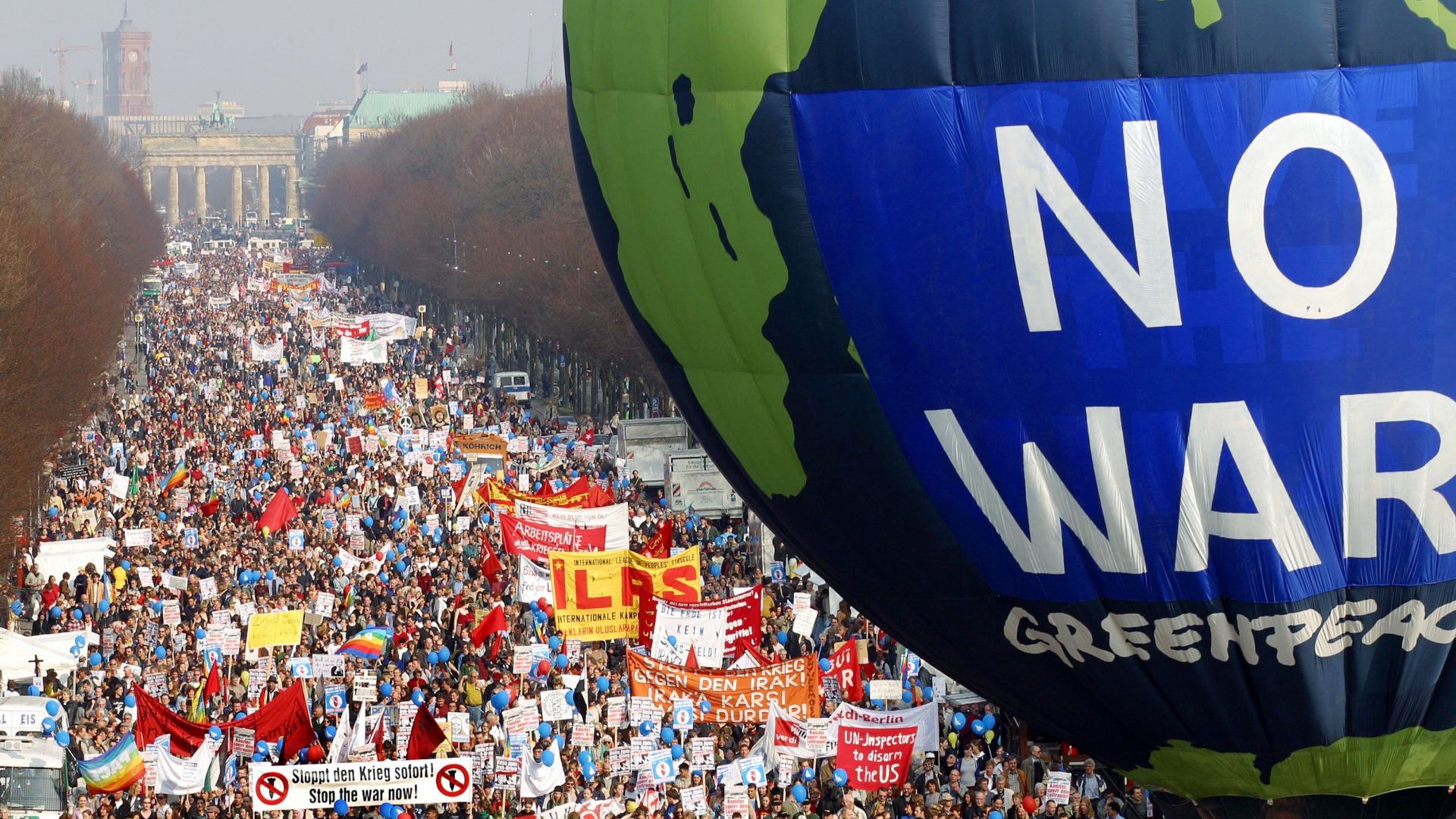More than two months in, Russia’s fresh invasion of Ukraine – Russia has, after all, occupied parts of Ukraine since 2014 – has shown up both the strengths and the weaknesses of the western alliance.
On the strengths side of the scorecard, the unity of Europe and the USA’s response to the invasion has clearly caught Russia hugely off guard. The combination of sanctions, economic restrictions, and Ukraine’s incredible resilience has completely changed international politics and the transatlantic alliance over the course of a few short weeks.
Nato is set to expand to include Sweden and even Finland – officially neutral for eight decades – with countries upping their military expenditure to finally meet quotas they have long been happy to ignore. Nato and the EU are, to an extent, galvanised in a way they haven’t been since the collapse of the Soviet Union.
So much for the good – now for the bad: the coordinated sanctions drive showed up the total inadequacy of previous responses to Russian aggression, not just in Ukraine in 2014 but also in Georgia in 2008.
With sluggish and self-serving responses in continuing trade with Russia across most European countries and the USA, the West provided hundreds of billions of dollars of financing to the Russian state, which has in turn fuelled the atrocities Russian soldiers now commit in Ukraine.
Worse still, resolution towards shutting off the flow of Russian oil and gas – and the flow of European cash still travelling in the opposite direction – is waning as Ukraine becomes one headline among many. Germany, Hungary and other countries are dragging their feet on further resolutions or restrictions on imports, guaranteeing Russia at least a partial income stream for some time to come.
Some of this is just unavoidable if we wish to keep the lights on, given how late we collectively woke up to the danger posed by Russia and the lengths to which Vladimir Putin would go – despite it hiding in plain sight for years.
There is no way for the west to travel back in time in order to take action on Russia earlier, but Russia is hardly the only human rights abuser with which we share economic co-dependency – it’s not even the one upon which we are most reliant. That dubious honour goes, of course, to China.
The UK, like many other western nations, seems trapped in an oscillating pattern of engagement and disengagement with China – periods of wanting to build relations with a rising superpower followed by wariness at what that engagement means.
The UK tried to build a special relationship in that direction, only to tear it down and order Huawei hardware to be removed from the UK’s 5G network backbone, though in another side of our constant Janus-like status with China, we then decided to allow Huawei equipment to continue operating on the 4G and wired internet backbones.
While our relationship might constantly back and forth, the US-China one is even stormier, with Donald Trump and Xi Jinping engaging in an on-and-off trade war for the duration of the former’s presidency – but even at their nadir, the economies remained completely interlinked and co-dependent.
The West needs Chinese goods, while China’s economy is hugely reliant on western imports. Our means of handling that so far has been unnervingly similar to how we’ve handled Russia for the last few decades – when something bad enough happens that the West can’t ignore it, we come out with strong words and a few token actions, and then get back to business as usual.
When we learn of huge scale internment camps for the Uighur people – an attempt to systemically wipe out a culture – we issue condemnatory statements. We then continue to buy surveillance technology from the companies making the internment camps possible.
When Hong Kong’s historic liberties – supposedly guaranteed in a UK-China treaty – were violated and the city’s press and civil liberties all but destroyed, we did the same: angry words, a few accommodations for refugees, and then business as usual.
We buy Chinese goods, sell services to Chinese companies, and even buy up Chinese government and corporate debt, all while lightly tutting at its human rights abuses. It is hard to think of what might end that uneasy status quo: just as the West kept trading largely without impediment with Russia even after the 2014 Ukraine invasion, we’ve shown ourselves willing to ignore all manner of egregious behaviour from China.
But just as Putin crossed one red line too far, there is one obvious act from China that would force the West to act, and that’s an invasion of Taiwan. Beijing has long stated – in unambiguous tones – that it considers Taiwan part of China and is absolutely committed to “reunification”. The US, by contrast, has committed to helping Taiwan keep itself free, though has stopped short of promising boots on the ground.
The West would find itself even less able to come up with a viable sanctions package against China at short notice than it did Russia – though as with Russia, it could probably do more than China expected. There is a good argument that this contributed to Russia’s strategic miscalculation on Ukraine – few there expected an economic or military support package on the scale of what was seen.
If the West wants to credibly protect Taiwan and to curb China’s human rights abuses, it needs to do what it failed to do on Russia – build in contingencies and backup options so that it could credibly threaten to impose huge sanctions in the event they were needed, without leaking billions through necessity even during an acute crisis.
“Now the West has woken up to the fact that Russia’s war against Ukraine has been financed by western oil and gas purchases,” Sam Goodman, Hong Kong Watch’s director of policy and advocacy, tells me. It is high time the West recognised that any future Chinese invasion of Taiwan will be financed by the likes of BlackRock, Schroeders, Vanguard, & HSBC – all of whom continue to invest heavily in Chinese equities and government bonds.”
Ukraine has served as a stark reminder that international investment and trading isn’t value-neutral, or divorced from real-world consequences and suffering. Investing in one company over another, one country over another, funds its subsequent activities – as well as emboldening it around how free a hand it has in future action.
We dropped the ball spectacularly on Russia, and now are scrambling to finally play catchup. On China – and other potential human rights and international law abusers – we have a chance to get ahead, by building up our laws and institutions and fixing our supply chains. Let’s get ahead, just for once.




